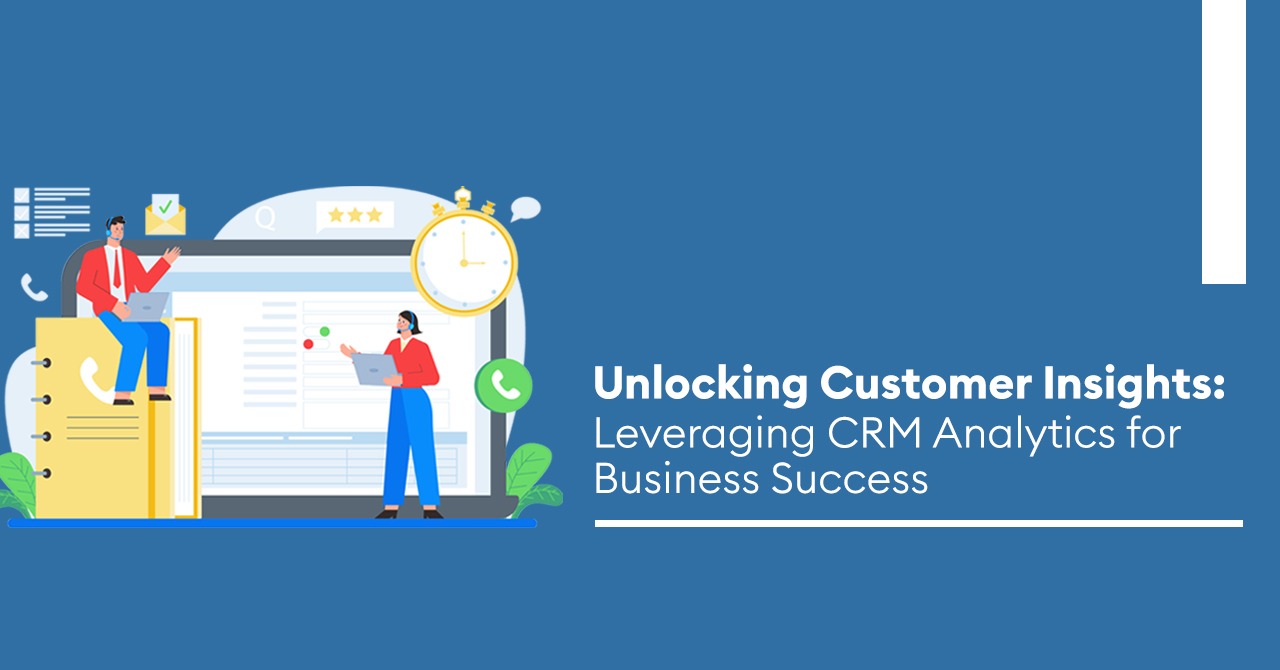Understanding your customers and their preferences is crucial for sustainable growth and success in the cutthroat business environment of today. Customer relationship management (CRM) systems have long been a pillar of efficient customer management, allowing organisations to improve communication, streamline processes, and improve the overall customer experience. However, businesses can gain priceless customer insights that go beyond simple data management by utilising CRM analytics. In this blog, we’ll examine the potential of CRM analytics and how it can help businesses succeed by giving them useful customer intelligence.
What is CRM Analytics?
Data mining, predictive modelling, and other analytical methods are used in CRM analytics to glean valuable insights from the customer information kept in CRM systems. It offers a deeper understanding of customer behaviour, preferences, and patterns and goes beyond simple reporting. Businesses can learn a lot about customer segmentation, buying habits, lifetime value, churn prediction, and other topics by looking at historical data.
Unveiling Customer Segmentation
CRM analytics’ ability to segment customers based on various factors is one of its main advantages. Businesses can tailor their marketing initiatives, product offerings, and communication strategies to meet the particular needs and preferences of each segment by identifying distinct customer groups. Businesses can use CRM analytics to find high-value customers, dormant customers, prospects, and other niche markets, enabling them to create specialised marketing campaigns and individualised customer experiences.
Predictive Modeling for Customer Behavior
Businesses can use CRM analytics to move past descriptive analytics and into the world of predictive modelling. Businesses can predict future customer behaviour, such as purchase likelihood, cross-sell and upsell opportunities, and customer churn, by looking at historical data. These insights enable companies to plan ahead, maximise marketing initiatives, and anticipate customer needs, ultimately leading to revenue growth.
Enhancing Customer Experience
A happy customer is more likely to stick around in the future. Businesses are able to provide individualised experiences at every touchpoint thanks to CRM analytics, which helps them understand the preferences, problems, and expectations of their customers. Businesses can proactively address customer concerns, deliver targeted recommendations, and provide a seamless customer journey by tracking customer interactions, feedback, and sentiment analysis. This tailored approach encourages customer loyalty and advocacy in addition to increasing customer satisfaction.
Improving Sales and Revenue
CRM analytics can improve sales processes and boost revenue, which can have a big impact on a company’s bottom line. Businesses can spot trends, assess the effectiveness of their sales teams, and identify areas for development by studying sales data. Businesses can effectively allocate resources and increase their return on investment (ROI) by identifying the marketing channels and campaigns that result in the highest conversion rates. Additionally, cross-selling and upselling opportunities can be found with the aid of CRM analytics, allowing businesses to increase customer lifetime value.
Harnessing Social Media Insights
Social media has developed into a potent platform for customer engagement in the digital age. CRM analytics can combine social media data with customer profiles, giving businesses insights into how customers feel about their brands, how engaged they are, and more. Businesses can proactively address customer concerns, find influencers, and use user-generated content to improve their marketing strategies by keeping an eye on social media conversations.
Conclusion
Businesses cannot afford to ignore the power of CRM analytics in the data-driven world of today. Businesses can improve customer satisfaction and loyalty by utilising the insights gained from customer data to drive personalised experiences, drive informed decisions, and optimise marketing efforts. CRM analytics enables companies to maximise the value of their customer relationships, resulting in long-term success and a competitive edge in a fast-paced market. For any company that wants to succeed in the age of customer centricity, adopting CRM analytics is a strategic necessity rather than just a choice.




